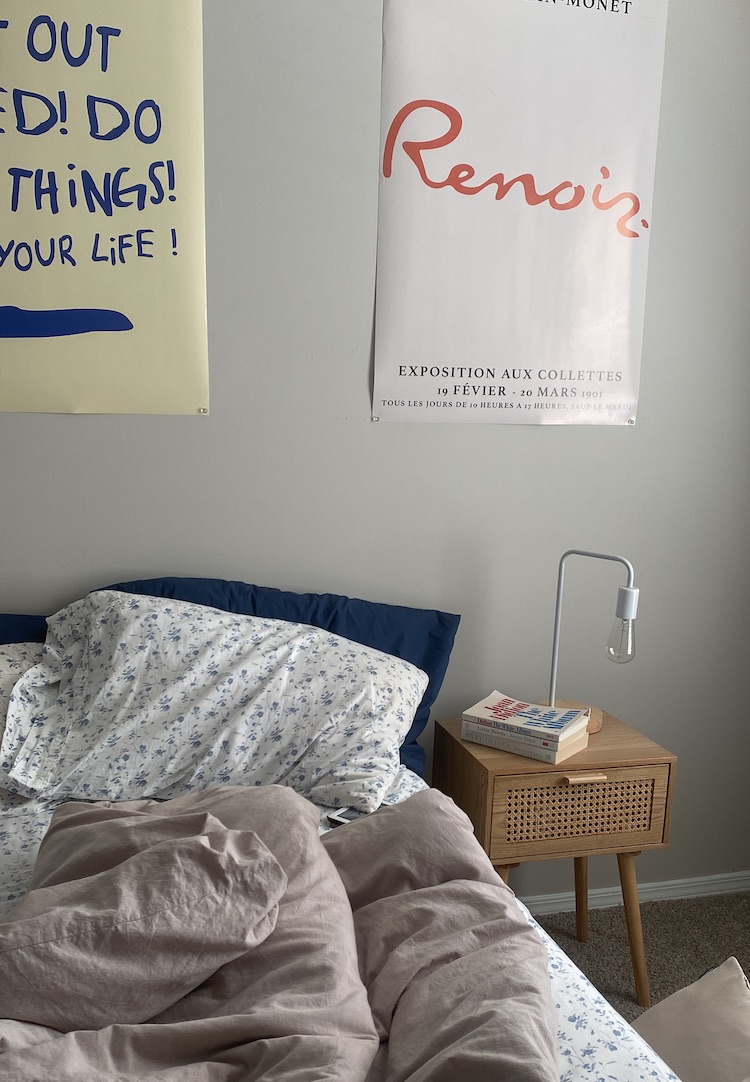I spoke to four people who contracted an STI about their experiences
IMAGE VIA LOLA
WORDS BY TESS FISHER
Demystifying the three letters we never talk about.
“If you do touch each other, you will get chlamydia, and die.” These iconic words from Mean Girls’ Coach Carr are still quoted today, but it’s lines like this that make talking about sexual health feel taboo.
There is a persistent perception of STIs as being ‘dirty’ or ‘unhealthy’, but it’s this mentality that makes people fearful of contracting one and leads some to avoid getting tested.
For more sex advice, head on over to our Life section.
Whether the condom breaks, you have a drunken mishap, someone you trust lets you down, or unprotected sex makes you feel liberated and closer to your partner, it’s important to know STIs aren’t the end of the world.
By opening up the conversation around STIs and normalising getting tested, we can begin to view them in a new light. I spoke to four people who have been there, done that, to break down the STI-gma society needs to get over.
Bonnie*, chlamydia
Bonnie was shell shocked when she got chlamydia within a year of losing her virginity.
“I was so embarrassed and gutted,” she said. “I didn’t know what to do or who to talk to because I was only 18. I burst into tears when I got my results, but my doctor was amazing. She told me not to be embarrassed because 25 per cent of the population actually have chlamydia, they just don’t know about it.”
The reason so many people don’t know is that often they’re asymptomatic. When Bonnie contracted chlamydia again later in life she had no symptoms at all.
“The second time around I got quite a big fright because I didn’t have any symptoms. It was scary because chlamydia can have repercussions, especially for women, meaning you can’t get pregnant.”
I asked Bonnie how she felt after that second bout. “I learnt that if you aren’t going to have safe sex, get tested more regularly. Even if you are having safe sex, we’ve all had a moment where the condom breaks or it’s gone off during sex, ‘into the void’. It’s not just about not having an STI; if you want to have kids later in life you need to make sure you’re keeping clean.”
Jen*, mycoplasma genitalium (MG)
“I had a really weird one called mycoplasma genitalium,” said Jen. “I was getting my period quite a lot and it turns out it wasn’t my period, I was just bleeding from my uterus.”
That sounds frightening enough as it is, before the nine-syllable diagnosis. “I hadn’t heard of it, which was really scary. No one I spoke to had ever heard of it, so I couldn’t find too much sympathy or clarity.”
Jen wasn’t the only one in the dark about MG – this relatively ‘new’ STI comes with a lot of unknowns. Like chlamydia, MG can cause infertility, but unlike chlamydia, it can be hard to treat.
The first round of Jen’s antibiotics didn’t work. “That was even more gut-wrenching because the second round of antibiotics was like $200. I had to wait another ten days before I could find out if I was negative, and thank god I was. If I wasn’t, my case would have been sent to the sexual health department for further investigation.”
Although she’d been offered an anonymous text, Jen let her sexual partners know over the phone. Neither gave her a hard time. “If you sleep with someone make sure they respect you, because it definitely makes it easier to break the news.”
In terms of coping, Jen said friends will be your biggest support. “Just be open and honest and tell a close friend so you don’t feel alone. If they’re a good friend they’re not going to judge you. It’s life, things happen.”
James*, syphilis
In James’ experience, preventative HIV medication, such as PrEP, has helped break down STI-gma in the gay community.
Pre-PrEP, James never got tested, for fear of being HIV positive. PrEP has changed all that. Users must get tested quarterly, but James now gets tested after every high-risk encounter. “I think having HIV off the table really allows people to take back their power.”
Syphilis, however, is a real pain in the arse. “The treatment can be awful. There are two needles, one for each buttcheek, and the mixture inside is almost clay-like in its thickness.”
Apparently, the real story begins after the jab (“You can’t sit right, you can’t walk right”), and sometimes you can have an adverse reaction. “I’ve only had that once… But afterwards, I was ready to join the nunnery. Of course, like the pain of pregnancy I’m told, those feelings subside and at some point, you pick yourself up again and have intercourse.”
James is open with his sexual partners if he catches something. “We’re all having sex, and it only takes one time unprotected to get something. Whether you’re a slut or an archangel, the risk is still there, so no one should be judged.” And if you find yourself freaking out after a positive diagnosis?
“Speak with a gay person because we know all about it, and we’ll talk to you in a comforting and open way,” said James. “If you’re in the horrible situation where you can’t contact a gay person, invest in a doctor. Doctor Google is fine, but you’d be surprised by the benefits you can get from a GP that knows you.”
Isobel*, human papillomavirus (HPV)
“I never thought it would happen to me,” said Isobel. She was always careful to use protection and wore condoms with new guys who claimed to be ‘clean’.
She got tested after her last relationship “ended in flames” and, to her relief, everything came back negative. However, when she had a pap smear years later, it came back positive for the world’s most common STI: HPV. Isobel had received the Gardasil HPV vaccine, but this strain hadn’t been targeted.
“I was so upset,” said Isobel. “I didn’t realise it wouldn’t be captured in my last round of checks.” It was 12 months before she could be retested. “I waited, the weight of waiting so heavy, and got checked in a year. It was still there. I was devastated because it is a connection to the betrayal of my last relationship. I just wanted it to disappear.”
Now, Isobel gets checked yearly to ensure it doesn’t turn cancerous. Processing the news is challenging, but keeping it to yourself can be stifling.
“The hardest part is uttering the words to someone you’ve started dating. There’s no easy way to tell them, it’s just like ripping a bandaid off. They’ll either be cool with it or they won’t, if they aren’t cool with it they’re maybe not the right person anyway.”
Isobel wants others to know they’re not alone. “It’s much more common than you think. Confide in someone. They’ve probably been through something similar or know someone who has. The more we open the dialogue, the easier it is for everyone. Hopefully, the stigma lifts.”
It’s easy to think that because we don’t talk about it very often, no one in our lives has, or has had, an STI. But statistically, that’s pretty unlikely. We’ve normalised talking about mental health issues and should do the same for sexual health. Going through either alone isn’t fair.
*Names have been changed
To learn more about STIs, head here.










